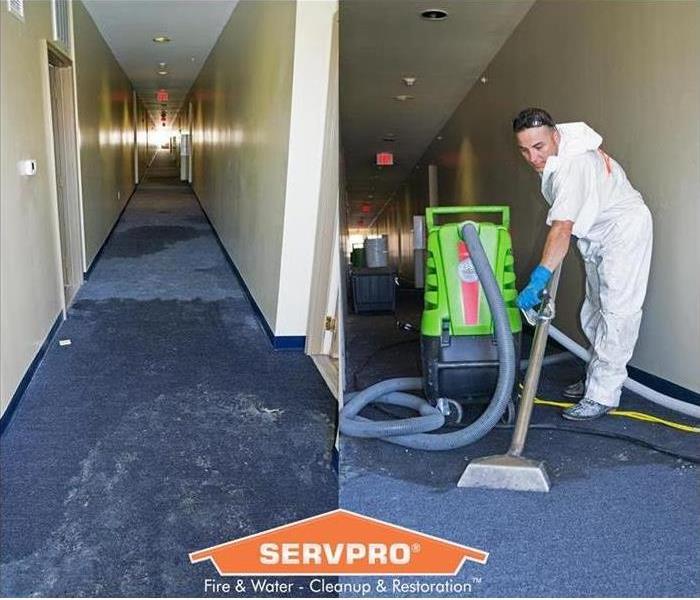How to Prevent Water Damage in your Home
6/20/2022 (Permalink)
 Contact SERVPRO® of Panthersville at (678) 515-8602 for professional water damage restoration services.
Contact SERVPRO® of Panthersville at (678) 515-8602 for professional water damage restoration services.
Keeping your house safe from water damage is relatively easy. Review the following list of things you can do to keep your house free of water damage.
- Clean your gutters—ensure they are free from debris that can clog and cause water damage.
- Check your downspouts—your downspouts should be directed 5 to 10 feet away from the house.
- Slope your yard—keep water flowing away from your house, not into it. Ensuring that the landscaping flows water away from the house is essential.
- Check your sump pump—you want to ensure that it is working so, at minimum, test it at least once a year. Having a backup sump pump on standby (in case the first one fails) is advisable.
- Look for leaky pipes—make repairs before a small leak turns into a big one.
- Watch where you plant—some plants and trees have invasive root systems that will compromise your drainage system, water lines, septic tank, pipes, or foundations.
- Ceiling and attic check—ensure that you do not see any wet spots on the ceiling and attic above, because they will eventually spread below.
- Repair old, tired caulking—check doors and windows along with bathtub and sink fixtures to ensure that your caulking is not cracked.
- Water bill anomalies—double check your water bill. If it has skyrocketed for no apparent reason, then it may be due to a leak.
- Inspect the roof—look for missing or damaged shingles that can cause water to leak into your home.
- Use a drain snake, not chemicals—a clogged drain is a nuisance, but did you know chemical drain cleaners can eat away at your pipes? Try your luck with a drain snake first.
- Do not pour grease or fat down your sink—pour fat and grease into an empty can and throw it away. Your pipes will thank you.
- Inspect washing machine supply lines—check out the cold and hot water supply hoses and look for cracks and other wear and tear. It is recommended that you replace hoses every five years.
- Check the floor around your toilets, tubs, showers, and sinks—look for any soft spots or moisture. You might need a Plumber to fix any leaks.
- Check your hot water heater—schedule a plumbing inspection, look for signs of corrosion, and check your maintenance instructions. You may want to flush the tank every six months to remove sediment.
- Measure the humidity levels—do you regularly have condensation on your windows? The relative humidity in your home should range between 30 and 50 percent. A humidifier may correct sporadic humidity fluctuations, but ongoing high-humidity levels may be a sign of a more serious issue that could lead to mold and mildew that may require a professional.







 24/7 Emergency Service
24/7 Emergency Service